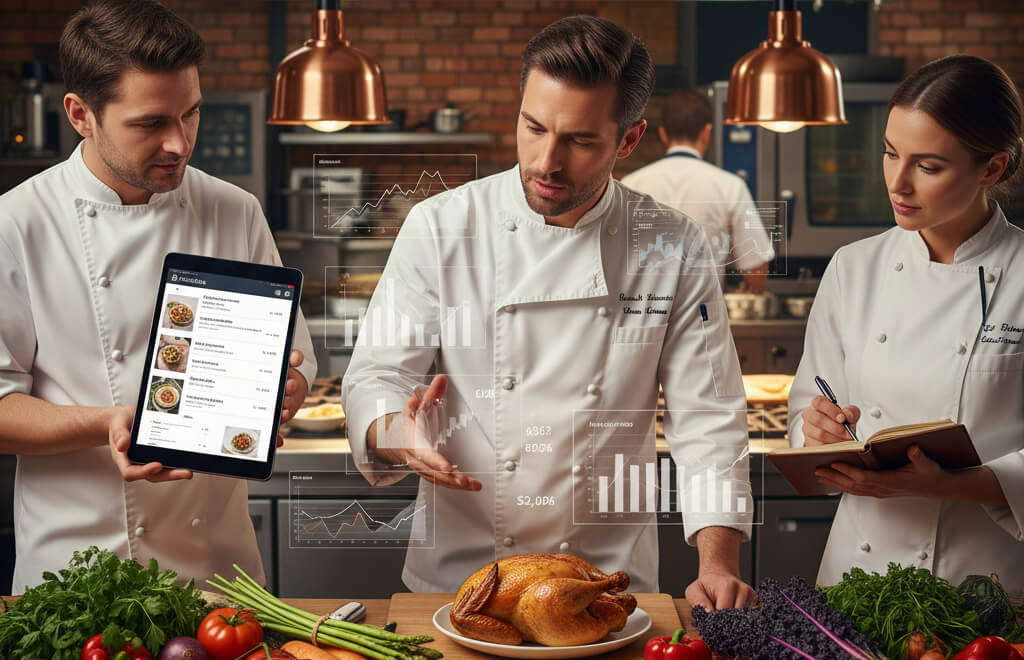October 07, 2025

Seasonal menus are an invaluable tool for restaurants seeking to stay relevant, reduce costs, and enhance the dining experience. With evolving consumer preferences and the growing demand for sustainable sourcing, seasonal menus provide an opportunity to offer fresh, high-quality dishes that change with the seasons, all while strengthening your brand and customer loyalty.
A key element of successful seasonal menus is the use of fresh, locally-sourced ingredients. Not only do these ingredients offer superior flavor, but they also reduce inventory waste, leading to lower costs. In addition, customers are becoming more environmentally conscious and increasingly appreciate sustainable sourcing. Highlighting this in your menu and marketing can boost both customer satisfaction and your restaurant’s online reputation.
Why It Matters: Seasonal ingredients reflect a commitment to quality and sustainability, both of which can differentiate your restaurant from competitors. Consider reaching out to local farmers or food suppliers to build relationships that support the community and enhance your brand’s reputation for freshness.
For more on leveraging customer data for smarter menu decisions, check out Using Customer Data to Make Smarter Menu Decisions.
To optimize your seasonal menu, look back at past offerings and analyze performance data. Evaluate which dishes sold well, which were underperformers, and how your pricing strategy impacted sales. This historical insight helps you create a more tailored, profitable menu by replicating past successes and avoiding mistakes.
Tips for Analysis:
Learn more about tracking campaign success with How to Calculate ROI on Restaurant Marketing Campaigns.
Given that many diners now browse and order food online, it’s crucial that your seasonal menu is optimized for digital platforms. Integrating your Point of Sale (POS) system with your website and online ordering system ensures that updates are reflected in real-time, making it easy to manage and showcase your seasonal offerings to both in-house and online customers.
Key Considerations:
For more on POS integration with your website, see How to Integrate Your POS With Your Website.
When promoting a seasonal menu, be sure to highlight signature dishes that exemplify the season’s best ingredients. Use descriptive language that emphasizes the flavors, textures, and origins of your dishes. High-quality photos of the dishes can help increase appetites and drive sales, especially when featured prominently on your menu and online platforms.
Pro Tip: Feature a few standout dishes that embody the essence of the season. You can also suggest pairings with drinks or appetizers to enhance the dining experience.
Online Tip: Encourage social media sharing by creating Instagram-worthy dishes. Guests are likely to share their experiences on social platforms, giving you organic marketing exposure.
For more on leveraging your website and engaging diners online, see How to Turn Website Visitors Into Paying Diners.
Seasonal menus offer excellent opportunities for timely and creative marketing. Promote your new seasonal dishes across multiple channels to build excitement and anticipation among your diners.
Marketing Ideas:
Seasonal Promotions can also tie into special events or holidays, such as Halloween, Thanksgiving, or summer festivals, further enhancing their relevance and appeal.
Learn more about creating seasonal campaigns that drive traffic and bookings here: Seasonal Campaigns That Drive Website Traffic & Reservations.
A seasonal menu gives you the perfect opportunity to experiment with new ingredients, flavors, and cooking styles. Don’t be afraid to try plant-based or gluten-free options, or even bold new flavor combinations. Collect feedback from guests, both in-person and through online reviews, and make adjustments accordingly.
Test Ideas:
Seasonal menus provide a unique chance to refresh your offerings each season. Regular updates keep customers excited and engaged.
To learn more about marketing vegan options, check out Plant-Based Dining: How Restaurants Can Market Vegan Options.
Consistency is key when it comes to marketing and customer experience. Ensure that your seasonal menu items, descriptions, and pricing are consistent across all platforms—whether on your website, social media, or in-house materials.
Inconsistencies can lead to confusion and frustration among diners, which can hurt your brand reputation and sales. Always double-check that your online menu is aligned with the one guests will see when they visit in person.
Why It Matters: Consistency builds trust. If a guest sees an item on your website and is excited to try it but doesn’t find it on the in-house menu, it can negatively impact their experience.
Boost your online discoverability and local search rankings by following our guide to SEO for Restaurants: SEO for Restaurants: How to Get Found Online.
Seasonal menu planning is an essential strategy that aligns your restaurant with the rhythms of the seasons while keeping your offerings fresh and exciting for diners. By leveraging local, seasonal ingredients, analyzing past data, optimizing for online ordering, and aligning your efforts with marketing campaigns, you can turn your seasonal menu into a powerful tool for increased revenue and enhanced customer satisfaction.
Whether experimenting with new concepts, maintaining consistency, or building anticipation through creative campaigns, seasonal menus allow you to stay relevant and continue offering new experiences to your guests. Keep your strategies flexible and data-driven to maximize impact and ensure that your restaurant’s seasonal offerings are always a hit.
Stay up to date with the latest tips, expert insights, product reviews, and step-by-step guides to help you grow, create, and succeed—no matter your industry or passion.